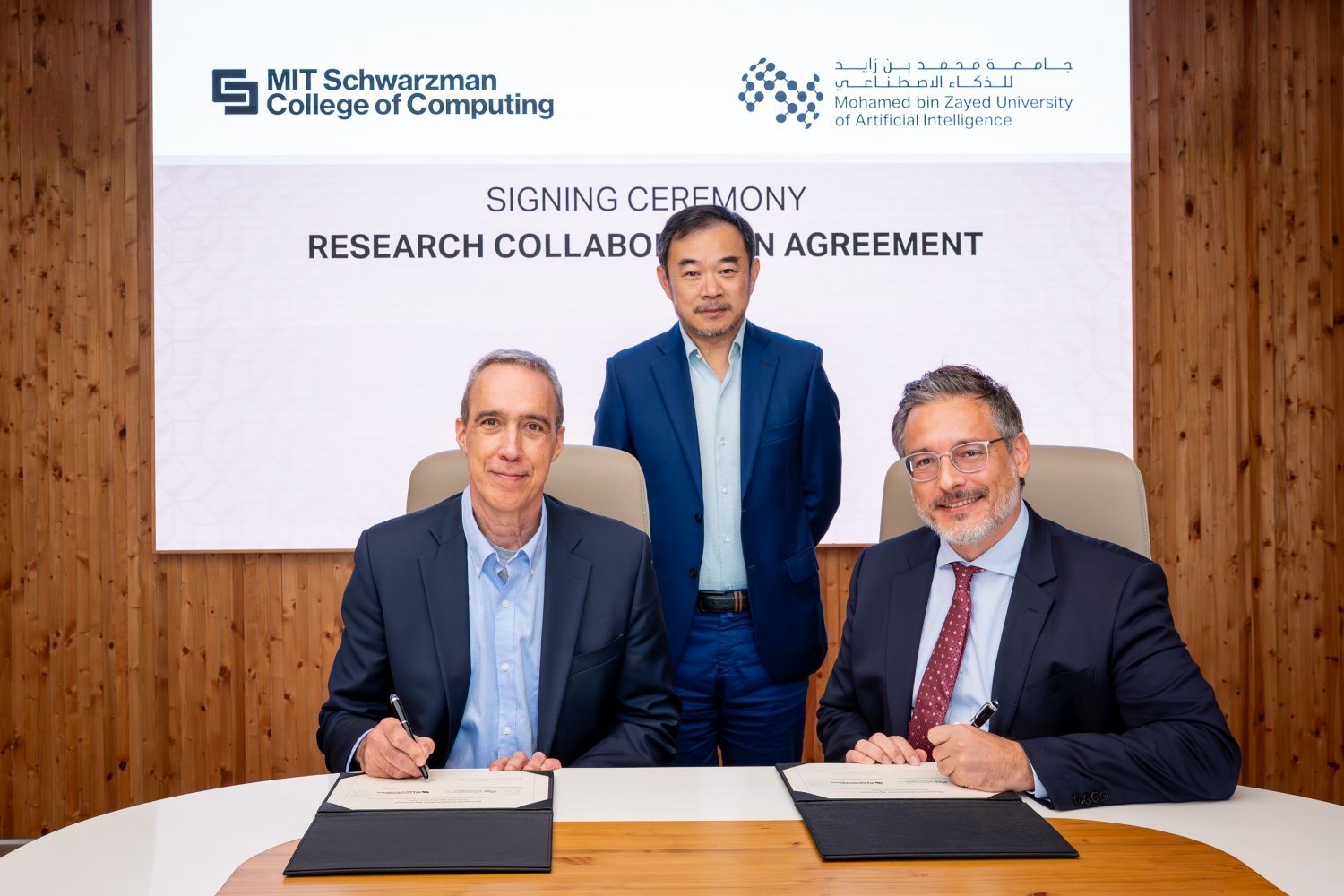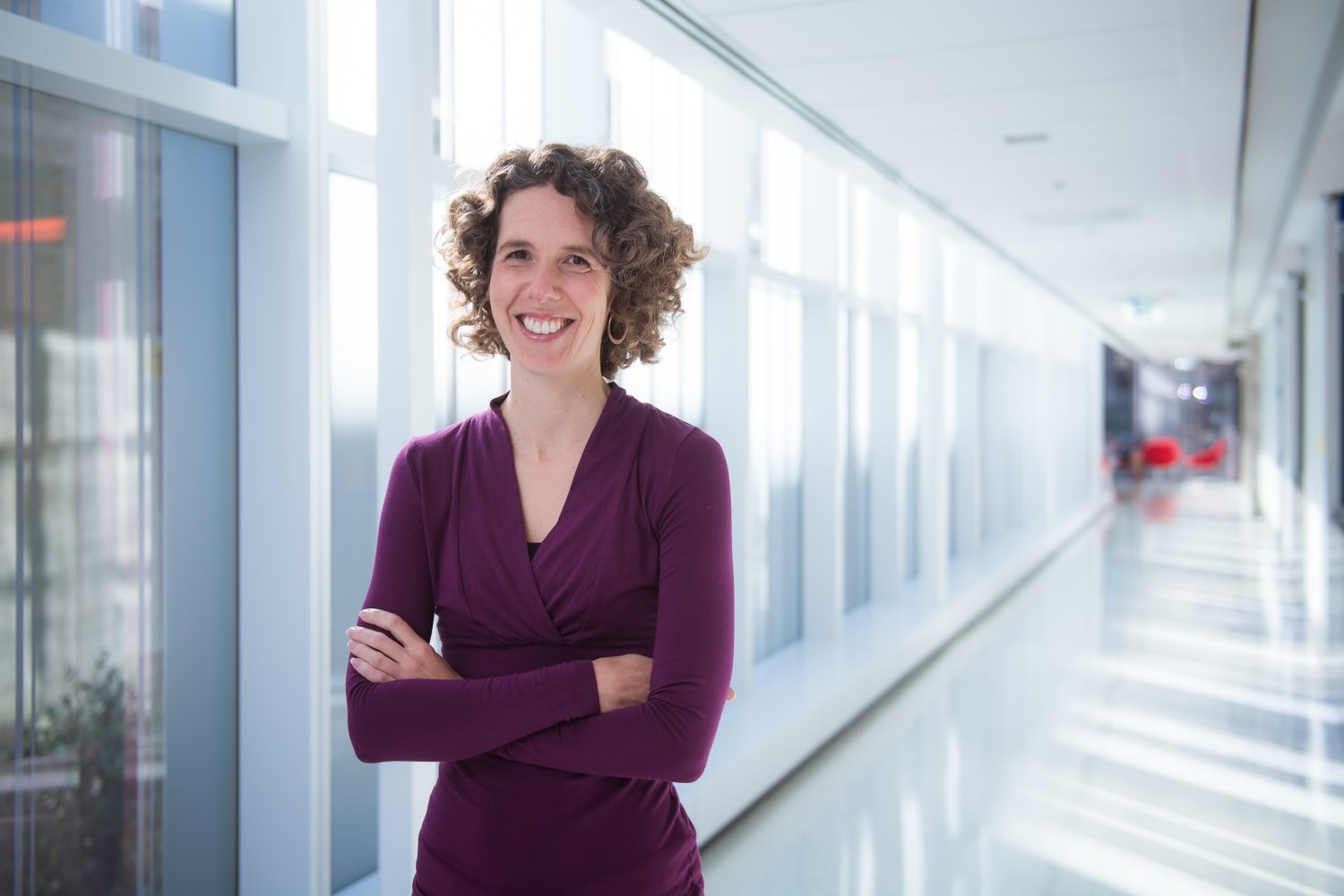MIT Schwarzman College of Computing and MBZUAI launch international collaboration to shape the future of AI
The MIT Schwarzman College of Computing and the Mohamed bin Zayed University of Artificial Intelligence (MBZUAI) recently celebrated the launch of the MIT–MBZUAI Collaborative Research Program, a new effort to strengthen the building blocks of artificial intelligence and accelerate its use in pressing scientific and societal challenges.
Under the five-year agreement, faculty, students, and research staff from both institutions will collaborate on fundamental research projects to advance the technological foundations of AI and its applications in three core areas: scientific discovery, human thriving, and the health of the planet.
“Artificial intelligence is transforming nearly every aspect of human endeavor. MIT’s leadership in AI is greatly enriched through collaborations with leading academic institutions in the U.S. and around the world,” says Dan Huttenlocher, dean of the MIT Schwarzman College of Computing and the Henry Ellis Warren Professor of Electrical Engineering and Computer Science. “Our collaboration with MBZUAI reflects a shared commitment to advancing AI in ways that are responsible, inclusive, and globally impactful. Together, we can explore new horizons in AI and bring broad benefits to society.”
“This agreement will unite the efforts of researchers at two world-class institutions to advance frontier AI research across scientific discovery, human thriving, and the health of the planet. By combining MBZUAI’s focus on foundational models and real-world deployment with MIT’s depth in computing and interdisciplinary innovation, we are creating a transcontinental bridge for discovery. Together, we will not only expand the boundaries of AI science, but also ensure that these breakthroughs are pursued responsibly and applied where they matter most — improving human health, enabling intelligent robotics, and driving sustainable AI at scale,” says Eric Xing, president and university professor at MBZUAI.
Each institution has appointed an academic director to oversee the program on its campus. At MIT, Philip Isola, the Class of 1948 Career Development Professor in the Department of Electrical Engineering and Computer Science, will serve as program lead. At MBZUAI, Le Song, professor of machine learning, will take on the role.
Supported by MBZUAI — the first university dedicated entirely to advancing science through AI, and based in Abu Dhabi, U.A.E. — the collaboration will fund a number of joint research projects per year. The findings will be openly publishable, and each project will be led by a principal investigator from MIT and one from MBZUAI, with project selections made by a steering committee composed of representatives from both institutions.
Latest MIT News
- Method teaches generative AI models to locate personalized objectsAfter being trained with this technique, vision-language models can better identify a unique item in a new scene.
- Darcy McRose and Mehtaab Sawhney ’20, PhD ’24 named 2025 Packard Fellows for Science and EngineeringMcRose, an environmental microbiologist, is recognized for researching the ecological roles of antibiotics in shaping ecosystems, agriculture, and health.
- MIT-Toyota collaboration powers driver assistance in millions of vehiclesA decade-plus alliance between MIT’s AgeLab and Toyota’s Collaborative Safety Research Center is recognized as a key contributor to advancements in automotive safety and human-machine interaction.
- MIT engineers solve the sticky-cell problem in bioreactors and other industriesTheir system uses electrochemically generated bubbles to detach cells from surfaces, which could accelerate the growth of carbon-absorbing algae and lifesaving cell therapies.
- Blending neuroscience, AI, and music to create mental health innovationsMedia Lab PhD student Kimaya Lecamwasam researches how music can shape well-being.
- Why some quantum materials stall while others scaleIn a new study, MIT researchers evaluated quantum materials’ potential for scalable commercial success — and identified promising candidates.













